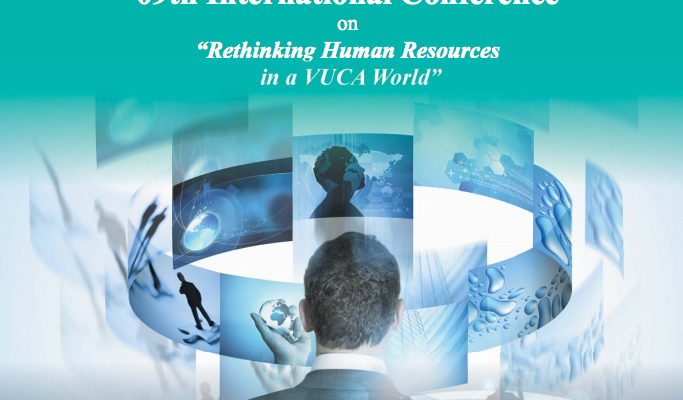Let me start with a confession. I am not a great fan of acronyms. I know that some of them are an integral part of our language and are universally known. I use these myself. The BBC is the BBC and it is very rarely referred to as the British Broadcasting Corporation. However, there are acronyms that are not universally known and they create a division between the in group (those who know and use the shorthand) and the youth group (those who have no idea).
When I first looked at the title of this conference I was definitely in the out group. I have never heard about the VUCA World. I asked a few colleagues around me and they had no idea either. Since I was asked to be one of the presenters from Westminster Business School at this conference on the 8th of February 2014 in New Delhi I needed to find out what VUCA was. It stands for “Volatility, Uncertainty, Complexity, Ambiguity” and has been used by some since the 1990s to describe the world we live in to encourage a higher level of preparedness for the challenges in organizations.
It is true that there is volatility, uncertainty, complexity and ambiguity in the world, but it is only one way of seeing our reality. In my presentation at the conference I shall argue that we should take a more balanced view and when we are rethinking our organisation’s human resource strategies we should make full use of the latest developments in neuro-biology, positive organisational scholarship and leadership research.
What if our process of rethinking human relationships and how we connect to others and to our environment started with the positive?
I shall propose an alternative, personal meaning to VUCA at the conference. What if the acronym stood for Virtues, Unity, Care, Agility? What if we started by listing the examples of Virtues, Unity, Care, Agility in our organisations? Appreciation creates a positive environment, helps people to relax, feel safe and connect with each other and with their own creativity in a deep and meaningful way. Looking at our challenges from this powerful and energized position leads to open, forward looking explorations and innovative solutions.
Recent developments in neurobiology confirm that 95-99 percent of our behavior is the result of habits and instincts. Our instinctual responses are encoded in our DNA, our learned patterns are acquired from a lifetime of experience and our volitional responses are generated primarily in an area of the brain called the prefrontal cortex (just behind the forehead). Sensitive technology allows us to see what is happening in the living brain. Developing a strong body-mind connection, paying attention to the information that our senses and emotions continuously send us are pre-requisites for all of us to unleash our creativity and enable others to do the same around us. It is well documented that workplace stress is as bad for our health as smoking or cholesterol. Stress also interferes with mental processes such as memory, concentration and decision making.
These facts should further encourage us to create supportive and safe work environments, giving individuals and team opportunities to expand their resilience to volatility, uncertainty, complexity and ambiguity. When we are searching for positive strategies for rethinking our human relationships we can find inspiring resources in the research on Positive Organisational Scholarship. Appreciative Enquiry is just one of the methods that has already helped the transformation and revitalisation of a number of organisations.
The latest development in Leadership research puts the emphasis on embodiment encouraging a strong connection between body-mind connections. It is well documented that embodied leaders have the ability to be fully present and they create an environment of inclusiveness that inspires and motivates others.
“As leaders cultivate the capacity to embrace thresholds not as a threat, but as an opportunity, they prepare themselves for their most significant and enduring act of leadership, that is, being conscious stewards of our organisations, institutions and communities, for the sake of our children, our children’s children, and the many more generations to come.” Melina L.R. et. al. eds. (2013) The Embodiment of Leadership
I look forward to attending the conference and I shall share my experience with you on my return from India next week.

